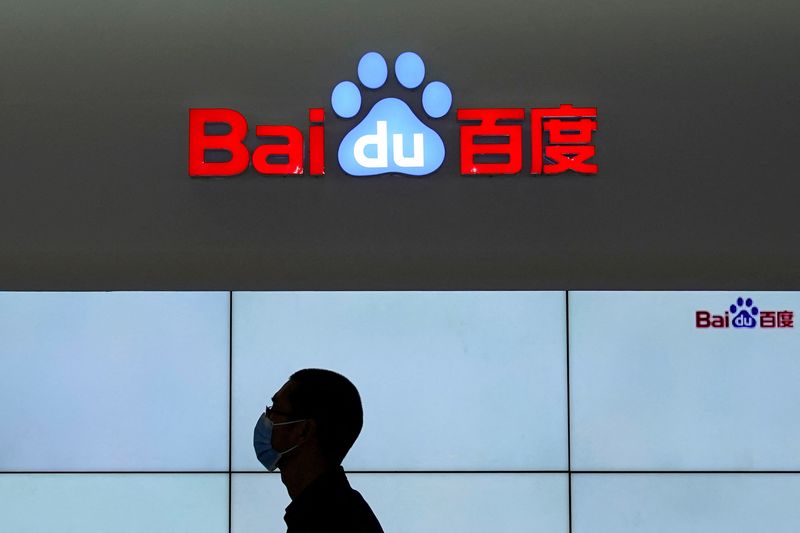China’s Xi speaks with Trump by phone, discusses Taiwan and bilateral ties
Investing.com-- JPMorgan upgraded its rating on Baidu on Sunday, stating that artificial intelligence and cloud were set to become the primary growth drivers of the Chinese internet giant in the coming quarters.
JPM upgraded Baidu Inc (NASDAQ:BIDU) to Overweight from Neutral and raised its price target to $188.0 from $110.0.
JPM said Baidu’s investment case had shifted away from its legacy advertising business toward rapid monetisation of its AI and cloud capabilities. This was likely to be underpinned by strong domestic demand for AI computing capacity and government support for the AI buildout.
JPM expects Baidu’s cloud revenue to surge 61% in 2026 from 23% growth in 2025, aided chiefly by the company’s in-house Kunlun AI chips.
JPMorgan said investors had underestimated the contribution of Baidu’s AI cloud business, which it valued at about $34 billion—more than half of its new target valuation. The firm said Kunlun chips were gaining traction across Chinese hyperscalers, telecom operators and state-owned enterprises as U.S. export controls pushed the industry toward domestic hardware.
The U.S. slapped China with several restrictions on AI chip imports over the past two years. These restrictions came to a head this year as the Donald Trump administration used chips as a major bargaining tool in its trade war with Beijing.
But China had responded by pushing for more self-reliance in AI, across all aspects of the industry. Baidu’s efforts to develop in-house AI chips are part of this push.
JPM also highlighted recurring revenue momentum from GPU-based cloud subscriptions, which grew 128% year-on-year in the third quarter and were expected to more than double again in 2026. It said Baidu had scaled its proprietary compute clusters to over 30,000 accelerators, supporting both its own AI models and enterprise inference workloads.
Advertising remained a drag, with JPMorgan estimating a further decline of around 10% in 2026 as AI-powered ad formats cannibalised traditional search revenue. But it said cloud and AI infrastructure growth would offset weakness in legacy segments.
Still, the bank warned of risks from competition in cloud services, especially from Chinese internet rivals Alibaba and Tencent. A slow recovery in ads also presented a risk.
